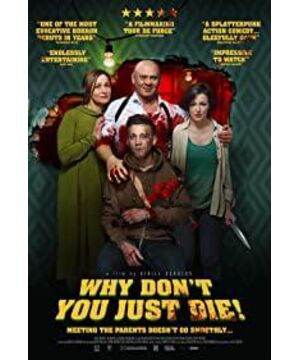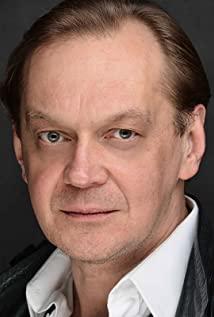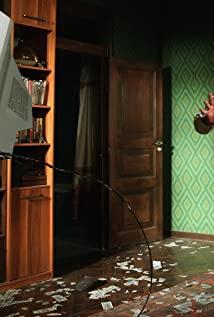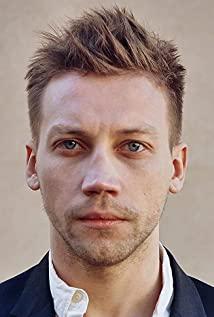First published on the public account "Detective"
Public ID: ttyingtan
Author: big cousin
Please indicate the source
"Violence" and "aesthetics" are two irrelevant words. As the film industry grew, they also coalesced into a popular concept—the aesthetic of violence. Those movies that are violent, bloody, large-scale, and extremely entertaining have become the first choice for many audiences.
However, the creation of R-rated violent aesthetic works in the European and American film circles has also fallen into a bottleneck period in recent years. The accumulation of formal pleasure or bloody scenes has long been unable to satisfy the audience, and the audience wants to see new creations. Quentin is not prolific, Guy Ritchie is often a fan's pigeon, and there are only a handful of directors who are still serious about making violent aesthetic movies. Well, since you can't wait for the violent aesthetic films of the masters, then shoot them yourself. No, a cutting-edge director from the fighting nation next door wrote, directed and edited himself, bringing to the audience a movie that brings the aesthetics of violence to the fullest.
The film tells the story of a stupefied young man named Matvey , who came to the house in a rage to take revenge after learning that his girlfriend had been sexually assaulted by her father Andre . He never wanted to welcome him, not only the sinister and cunning father-in-law Andre, but also the dark secrets hidden behind the family. An absurd and interesting fight, coupled with bizarre reversals again and again, finally gave the audience an unexpected ending.
This is director Kirill's debut, not a big production investment, and no big-name cast. But in exchange for a high degree of attention from foreign media, the freshness of Rotten Tomatoes is as high as 97%.
Being able to get critical reviews from European and American film critics, "Why Not Die" naturally has its own uniqueness.
>>> A strong tribute to aesthetics The Hollywood Reporter praised the film as "a collection of masters" . The exciting and bizarre layout in this film made the audience immediately think of the genius director Quentin Tarantino. Blood is a must, and the exaggerated blood spurting scenes in this film also make people scream: This is too Quentin!
But director Kirill managed to bring violence and aesthetics to the extreme. A focus shot and slow motion make the picture of a drop of blood look artistic. The red of the blood and the green of the background create a stark contrast between warm and cold. Violence implies softness, and softness hides violence.
Another similarity with Quentin's work is the three-stage structure of the film. Quentin's classic "Pulp Fiction" is composed of three parts: "Vincent and Martha's Wife", "Golden Watch" and "Bonnie's Situation".
The film is based on the names of the three characters "Matvi", "Evgenievich" and "Olia". Instead of narrating in a traditional linear chronological order, the scenes are re-assembled and reorganized to give these shots new meanings. There are shadows of Quentin's works everywhere in the film, and it is no wonder that "The Hollywood Reporter" described the film as "Once Upon a Time in Moscow" (corresponding to Quentin's work "Once Upon a Time in Hollywood").
In the design of photography, editing and action, the director took British director Danny Boyle (representative work: "Trainspotting") as a benchmark, and increased the fun of the film through the decomposition of fast and slow shots and pictures. The use of electronic music is also quite Nicholas Winding Refn (representative work: "Desperate Drive") texture.
Attentive audiences will also find many elements of Asian film directors in this film. The most typical scene is the scene in which father-in-law Andre throws the male protagonist Matvey away. The multi-angle cut shots and the use of slow motion have a strong flavor of John Woo (representative work: "The True Color of Heroes").
Does the hammer used by the protagonist Matvey look familiar? In the classic film "Old Boy" by South Korean director Park Chan-wook, the male protagonist also came to take revenge with a hammer, knocking out 15 of his enemies' teeth.
The interlacing of cold and warm tones, the exaggerated and rich scenery, and the strong visual contrast are also quite the style of director Wong Kar-wai. The big red curtains and bed sheets used in this film express a sense of desire, presenting the relationship between characters to the audience through color.
The dark green light shows the daughter's sense of confusion and loneliness about the future.
Daughter confessed to boyfriend Matvey that father Andre sexually assaulted her in the kitchen. The deep tones used in this main scene also bring out the fragility and contradictions of the characters. The sitting posture of the daughter is also similar to that of He Zhiwu, the character played by Takeshi Kaneshiro in "Chongqing Forest".
>>> How "fighting" can the R-level photographed by the fighting nation? When it comes to Russian films, audiences tend to think of sci-fi, historical or master-level art films. Can the director of Fighting Nation make an R-rated violent aesthetic film? After watching this movie: Yes! Not only can, but really "combat" level. Andre pressed Matvey who sent him to kill him, but Matvey kept silent. The irritable Andre drilled Matvey's foot with an electric drill without saying a word.
In hand-to-hand combat, the middle-aged Andrei was not weak against the young and vigorous Matvey. With a set of Russian wrestling, he directly subdued Matvey.
In the shootout, Andre used a double-barreled shotgun. This weapon has been used on the battlefield and in the hunting ground, and it is also one of the favorite weapons of the fighting nation. The power was amazing, and the opponent fell directly to the ground with one shot.
Do you think your opponent got a bento? This is a movie produced by the fighting nation! Those who can't be beaten to death are real men! I saw the opponent crawled up from a scarlet scarlet with blood flowing from his chest.
Seeing this scene, my cousin couldn't help but sigh, this is too strong! The facial expressions are just like the protagonists, shocking the whole family!
>>>The dark side brought out by black humor The following contains minor spoilers, it is recommended to eat it after watching. When you first listen to the plot of the movie, the audience may feel a little nonsensical. The impulsive guy seeks revenge for his love, but he is rubbed on the ground by the police's prospective father-in-law. These seemingly absurd designs are actually intentional by the director. What is scarier than blood is sharp social issues; what is scarier than violence is the current situation of the people. The director brought out the dark side of the fighting nation through the absurdity of this family story. Nothing more than two words: money , power.
Andre is not only a ruthless man, but also a greedy tiger. He and his partner were investigating a second-generation rich murder case, and the two who saw Qian Yankai immediately came up with a plan. They found the rich couple and told them that as long as they gave money, they would release the rich second generation. Pity the hearts of parents all over the world, the rich couple also agreed to use money to do things.
But when it comes to money, it's not that simple. The partner was waiting for the money to treat his wife's illness, but Andre was thinking about swallowing the huge sum. He hid the money secretly, turned around and told his partner that the rich couple didn't give any money at all.
Andre is the head of the police department and the ruler of the family. In the workplace, he only covered the sky and abused his power. In the family, being the head of the family does not have the appearance of being the head of the family. His wife was abusive after being drunk, and he was indifferent to his daughter. His world only had power and money, but no place for family members. When his daughter asked him if he could do him a favor, Andrei just asked indifferently, "The reason?"
Andre abused lynching to interrogate Matvey, and used his power to let go of the rich second generation who murdered and dismembered his body, reflecting the wanton domination of power by those in power. His behavior of embezzlement with his partner, as well as the drama of fighting each other for money, also reflects the ugliness of the human nature of those in power. The dirty faces of powerful people can be seen in the character of Andre.
In Russia, corruption and abuse of power have long been no secret, and have penetrated into various fields. The police shoved the banknotes into their pockets and let the speeding driver drive away. A mayor hands a lucrative city-building project to a company in his wife's name. The Russian Prosecutor's Office pointed out that Russia lost more than 133 billion euros to corruption between 2014 and 2017, while the actual total may be higher. From 2016 to 2019, the number of Russians who see corruption as a serious domestic problem doubled, from 24% to 41%. Most respondents believed that those in power were concerned with accumulating personal wealth rather than the well-being of the people.
"Deutsche Welle" once discussed the way out for young Russians under the title "Russia, a country not suitable for young people".
Finding a job with a decent income and living a comfortable life is almost a dream in Russia. For many young people, the choice is to go to Moscow or leave Russia.
The role of daughter represents the young people in Russia today. Only with economic independence can we stay away from the oppression of the original family and break free from the predicament of involuntarily. She needs money, so she targets her greedy father. By borrowing someone else's hand to kill her father and getting the money that her father embezzled, she can fly away and live the life she wants.
Once money and power are talked about in film and television works, a superhero is indispensable. So the director arranged for Matvey, a stunned young man, to be a "superhero". Let him put on a sweater with a Batman icon and fight with Andre, the villain who represents the power.
The biggest suspense of the film is actually told to the audience from the very beginning. It is the sentence at the beginning of the movie: until the last moment of his life, he does not know who is the winner. Who will kill the deer? "Big Tiger" Andre, or "Batman" Matvey? Or someone else? The audience didn't know who the real winner was until the last second.
Dare to use images to reveal the ugly facts hidden in the social system, and dare to expose the dark side of power and the true side of human nature in a playful way. After laughing, the audience can think more deeply about social issues, which is also the original intention of the creation of this film. The evaluation of "Russian Quentin" is a bit premature, but the 31-year-old Kirill told the audience with such a work: The director of Fighting Nation dares to challenge violent aesthetic films and also dare to expose the dark side of society.
Text/Big cousin
View more about Why Don't You Just Die! reviews










